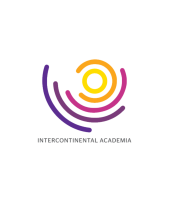October Session of the Intercontinental Academia 4
From October 18 to 27, the 4th edition of the Intercontinental Academia (ICA) on Intelligence and Artificial Intelligence continues at the Paris IAS, with the support of UBIAS, RFIEA Foundation, Rennes School of Business, and the laboratory AMSE (Aix-Marseille School of Economics).
Presentation
Established 4 years ago, the Intercontinental Academia (ICA) aims to create a global network of future research leaders by connecting the world's best early/mid-career researchers with internationally recognized scholars to work together on groundbreaking interdisciplinary research. This initiative represents a real opportunity for young researchers from around the world to engage in collaborative, interdisciplinary study.
Presentation of IC4
The fourth edition of the ICA, which takes place over the year 2021 and 2022, explores the complementarities between Artificial Intelligence and Neuroscience/Cognitive Science, and aims to reflect on the scientific, technical and societal issues raised by the development of artificial intelligence.
19 researchers from universities and research institutes in Brazil, Germany, France, the United Kingdom, Poland, the United States, Japan, South Africa, Israel and the Netherlands have been chosen through a selective process to participate. They are supported by 16 mentors: renowned and internationally recognized researchers in various scientific, philosophical and other fields. Among them are the economist and professor at the Collège de France, Philippe Aghion, Robert Aumann, winner of the 2005 Nobel Prize in Economics, Martin Rees, co-founder of the Centre for the Study of Existential Risk (CSER) at the University of Cambridge, and Karen Yeung.
After an opening session that took place virtually from June 13 to 18, the Paris IAS is organizing and hosting the October working days, with the final session to be held in June 2022 in Belo Horizonte.
In parallel to the closed working sessions that will take place at the IAS, a roundtable entitled Challenges of AI in the next two decades will be open to the public on October 22 at 3:00 p.m. and will bring together some of the mentors (more details to come).
Conferences and workshops are also scheduled in three Parisian universities that are partners of the Paris IAS: Paris-Saclay University, ENS and Sorbonne University.
Participants à ICA4
MENTORS
Philippe Aghion, College de France & London School of Economics, Econometric Society, American Academy of Arts and Sciences. 2001 Yrjo Jahnsson Award 2001, 2009 John Von Neumann Award, 2020 BBVA “Frontier of Knowledge Award
Robert Aumann, Center for the Study of Rationality in the Hebrew University of Jerusalem; 1994 Israel Prize in economics, 2005 Jon Von Neumann Theory Prize, 2005 Nobel Memorial Prize in Economic Sciences
Jack Copeland, University of Canterbury, New Zealand, co-Director of the ETH Zürich Turing Centre, Director of the Turing Archive for the History of Computing.2017 Barwise Prize, 2020 Te Apārangi Humanities Aronui Meda
Toshio Fukuda, Beijing Institute for Technology; Nagoya University; 2019-21 President of the Institute of Electrical and Electronics Engineers, 1997 Mittelmann Achievement Award, 2000 IEEE Third Millennium Medal, 2011 IEEE/RSJ IROS Harashima Award for Innovative Technology
William Hopkins, Georgia State University, Director of the Michael E Keeling Center for Comparative Medicine and Research; Co-Director of the National Chimpanzee Brain Resource
James McClelland, Stanford University; Co-director of the Center for Mind, Brain, Computation, and Technology; 2005 Mind and Brain Prize 2005, 2010 Rumelhart Prize, 2014 de Carvalho-Heineken Prize
Marc Mézard, Director of the École Normale Supérieure, Paris. 1996 Ampère Prize, 2009 Humboldt Prize, 2016 Lars Onsager Prize
Zaven Paré, Artist, expert in robotics; Universidade Federal de Juiz de Fora (IAD/UFJF)
Martin Rees, Co-founder, Centre for the Study of Existential Risk (CSER) at the University of Cambridge, UK’s Astronomer Royal, former President of the Royal Society, 1984 Heineman Prize, 2005 Crafoord Prize, 2011 Templeton Prize
Oron Shagrir, Hebrew University of Jerusalem, Schulman Chair of Philosophy and Cognitive Science
Shimon Ullman, Director of the Weizmann AI center. 2008 Rumelhart Prize, 2015 Israel Prize in Computer Science, 2019 Azriel Rozenfeld Achievement Award
Xiao-Jing Wang, New York University, Director of the Swartz Center for Theoretical Neuroscience, 2017 Swartz Prize, 2018 Goldman-Rakic Prize
Karen Yeung, Melbourne Law School, University of Birmingham, UN Global Judicial Integrity Network
Ada Yonath, Weizmann Institute, Head, Kimmelman Center for Biomolecular Structure and Assembly. US National Academy, British Royal Society, Israeli Academy, 2009 Nobel Prize in Chemistry
Robert Zatorre, McGill University; Co-founder of the international laboratory for Brain, Music, and Sound research (BRAMS), 2020 de Carvalho-Heineken Prize
FELLOWS
Laura Candiotto, Institute of Philosophy, Free University of Berlin
Alex Cayco Gajic, Département d’Etudes Cognitives, École Normale Supérieure in Paris
Patricia Coelho de Soarez, Department of Preventive Medicine, University of São Paulo
Evandro Cunha, Federal University of Minas Gerais (UFMG)
Massimiliano Di Luca, School of Psychology, University of Birmingham
Diego Frassinelli, Department of Linguistics, University of Konstanz
André Fujita, Department of Computer Science, University of São Paulo (USP)
Jakub Growiec, Department of Quantitative Economics, Warsaw School of Economics
Benjamin Guedj, INRIA (France) & Centre for AI, University College London
Suranga Kasthurirathne, Center for Biomedical Informatics, Regenstrief Institute & Department of Pediatrics, Indiana University School of Medicine
Yasutomo Kawanishi, Nagoya University & RIKEN Guardian Robot Project
Philipp Kellmeyer, Neuroethics and AI Lab, University Medical Center Freiburg (UKF) & Freiburg Institute for Advanced Studies (FRIAS)
Michael Livermore, School of Law, University of Virginia
Deshen Moodley, Department of Computer Science, University of Cape Town & Co-Director of the South African national Centre for Artificial Intelligence Research
Ithai Rabinowitch, Faculty of Medicine, Hebrew University of Jerusalem
Tahina Ralitera, French Alternative Energies and Atomic Energy Commission (CEA)
Oksana Stalnov, Technion – Israel Institute of Technology
Henry Taylor, University of Birmingham, UK
Melvin Wevers, Urban History and Digital Methods, University of Amsterdam
More info on ICA4
|
|
|
|
|
|
